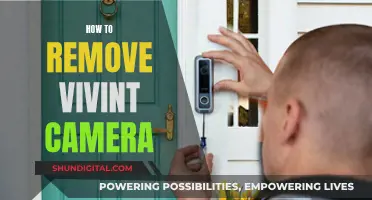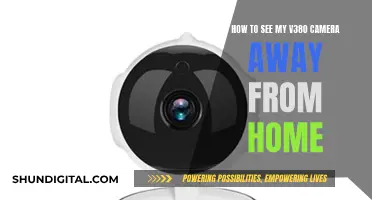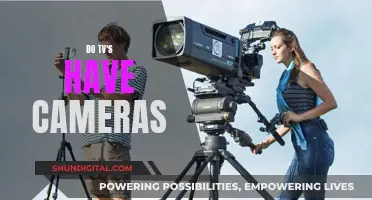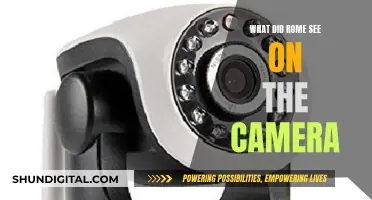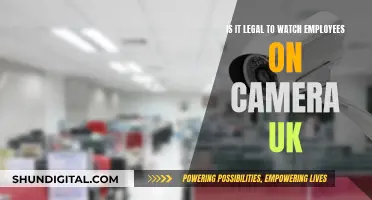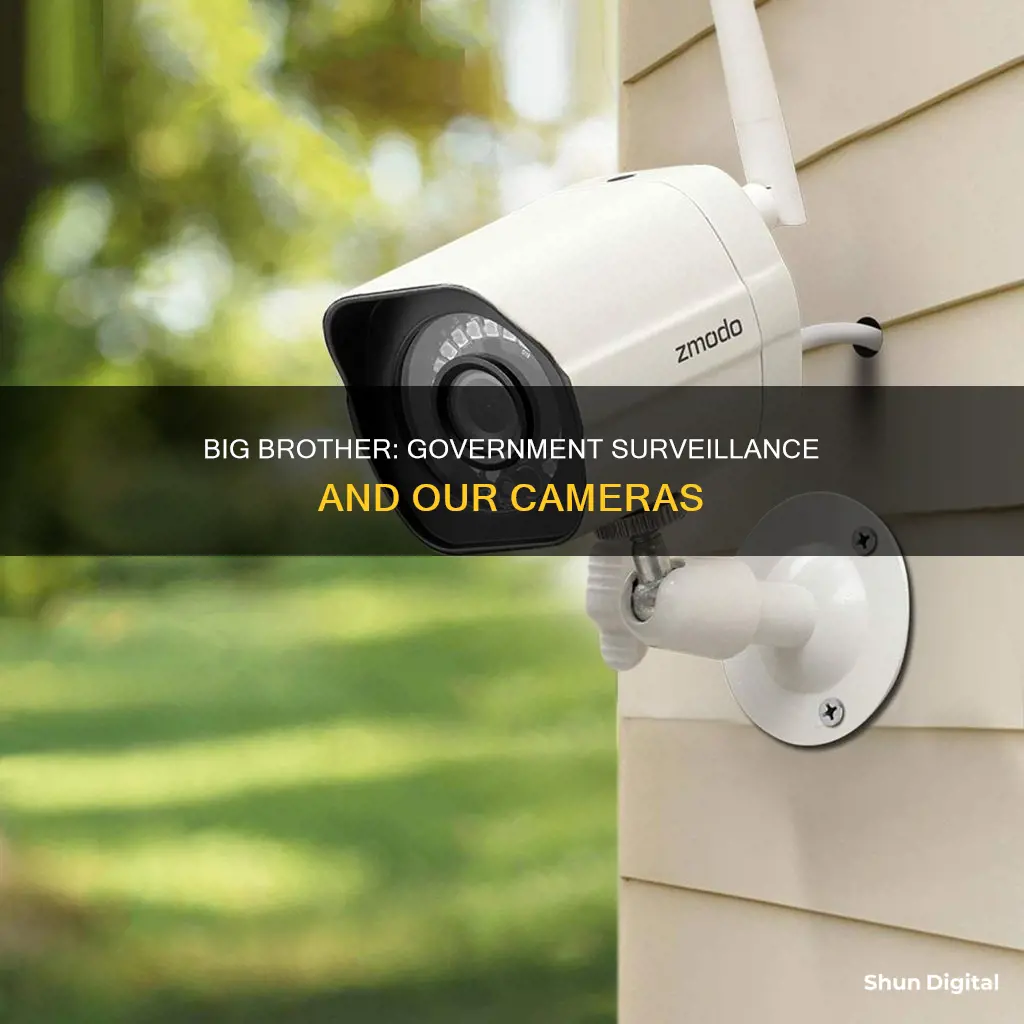
The idea of the government watching us through our cameras is a common trope in dystopian fiction, but how much of it is true?
Mass surveillance is the intricate monitoring of a large group of citizens and is often carried out by local and federal governments. In the US, this practice dates back to wartime monitoring and censorship of international communications. The formation of federal agencies like the FBI, CIA, and NSA has institutionalized surveillance.
While the government always keeps an eye on its citizens to some degree, technological advancements have made it easier than ever. Our smartphones, computers, smart home devices, and even pill bottles collect data about us, which is commercially used but also accessible to the government.
The US government has been known to access data from tech companies like Google and Facebook. Additionally, government agencies like the NSA can access our devices through built-in back doors, allowing them to tune in to our phone calls, read our messages, capture pictures, and more.
The use of surveillance cameras by law enforcement agencies is also common, with footage being used to solve crimes and monitor traffic violations.
While mass surveillance is often justified as necessary to fight terrorism and prevent crime, it has also been criticized for violating privacy rights and infringing on civil liberties. The question of whether the benefits of mass surveillance outweigh the risks to individual privacy remains a subject of ongoing debate.
| Characteristics | Values |
|---|---|
| Purpose | To monitor citizens, control the population, fight terrorism, prevent crime and social unrest, and protect national security |
| Surveillance methods | Internet surveillance, camera surveillance, interception of electronic communications, phone surveillance, DNA testing, and more |
| Surveillance targets | "Homegrown violent extremists", people with no specific connection to foreign terrorists, people with prescription medication, people with DNA-testing kits, people at airports, gun purchasers, and more |
| Surveillance agencies | FBI, CIA, NSA, DHS, TTIC, TSDB, ICEGang, GCHQ, DSD, and more |
| Surveillance laws | USA PATRIOT Act, FISA Amendment Act's PRISM surveillance program, Executive Order 12333, Foreign Intelligence Surveillance Act, and more |
What You'll Learn

Surveillance through webcams
Webcams can be used for surveillance, and there are several software options available that enable this functionality. However, it is important to note that there are privacy and security concerns associated with using webcams for surveillance.
Software Options
There are several software options available that enable the use of webcams for surveillance. Some examples include:
- ISpy: This software turns a webcam into a security camera and can detect sound or movement to provide home surveillance. iSpy is free to use, but some features are premium, such as remote viewing.
- Yawcam: This is a Windows webcam security camera software that allows users to view everything happening in their home or office. Yawcam has limited features but is free to use.
- SecuritySpy: This software is designed for Mac users and can be used to set up a video surveillance system for the home or office. SecuritySpy includes AI-powered smart motion detection and can be customised to reduce false-positive detections.
- Agent DVR: Agent DVR is an open-source conversion tool that allows the use of a PC camera as a security camera. One advantage of Agent DVR is that it does not require port forwarding, eliminating the need for a router.
- AlfredCamera: AlfredCamera is a laptop security camera app that can also convert old phones and tablets into security camera devices. It offers motion detection and notification features and provides remote access to camera feeds via a mobile app.
Privacy and Security Concerns
While webcams can provide a convenient and affordable way to set up a surveillance system, there are several privacy and security concerns to consider:
- Fuzzy Image and Video Quality: Webcams may produce lower-quality images and videos compared to dedicated security cameras, especially those offered by top CCTV camera brands.
- Lack of Advanced Security Features: Webcams may lack advanced security features such as night vision, limiting their effectiveness in certain situations.
- Susceptibility to Hacking: Webcams connected to the internet may be more vulnerable to hacking attempts, potentially exposing users' daily lives without their knowledge.
- Limited Surveillance Range: Some webcams may have shorter surveillance ranges, limiting their effectiveness in monitoring large areas.
- Need for Constant Power: Using a webcam as a security camera typically requires the host computer to be left running at all times, which can be inconvenient and increase energy consumption.
- Monitoring Location Limitations: Webcams connected via USB cables may be limited in their monitoring locations, as they are typically not designed for outdoor use or placed too far from the computer.
In conclusion, while webcams can be converted into surveillance tools with the help of specific software, it is important to consider the potential privacy and security implications associated with their use. Dedicated security cameras may offer more advanced features and better performance for surveillance purposes.
Apple Watch Series 3: GPS and Camera Features Explored
You may want to see also

Surveillance through phone cameras
It is a fact that governments, to varying degrees, monitor their citizens. With the advent of smartphones, governments have another tool to watch their citizens. While phone surveillance generally requires a warrant, it is still a good idea to cover up your phone's camera. Here are some reasons why:
The Government Can Spy on You Through Your Phone's Camera
This may seem like a conspiracy theory, but it is a fact. Your phone's camera can be used to spy on you, and the government has been known to do this. In 2017 alone, the NSA was able to get data from more than 534 million phone calls and text messages.
Your Webcam Can Be Hacked
It is not just the government that you have to worry about. Hackers can also pull images of people through their webcams. So, if you are not using your webcam, it is a good idea to cover it up.
The Government Can Access Your Phone Records
If you are suspected of committing a crime, law enforcement may be able to access your phone records. This includes your call history and text messages. So, be mindful of what you discuss on your phone, as it may not be as private as you think.
The Government Can Track Your Location
Through your smartphone, the government can track your location. This is because your phone connects to the internet and collects data about you, including your location. So, if you are trying to keep your whereabouts private, it may be a good idea to leave your phone at home.
The Government Can Access Your DNA Information
If you have used a private DNA-testing company to find out more about your ancestry, you may have also shared that information with the government. Law enforcement has been able to successfully request privately obtained genetic information. So, if you are trying to keep your genetic information private, it may be best not to use these types of services.
In conclusion, while smartphone cameras can be a useful tool for governments to monitor their citizens, it is important to remember that they can also be used to invade privacy. As such, it is important to be mindful of what you discuss and do on your phone, as it may not be as private as you think.
Are NSA Agents Watching Us Through Our Cameras?
You may want to see also

Surveillance through smart devices
Smart devices are everywhere, from our TVs to our fridges, cars, and offices. They are designed to make our lives easier and automate daily tasks. However, they also pose a significant threat to our privacy and can be used for surveillance.
How Smart Devices Collect Data
Smart devices collect a wide range of data about their users. Smart security cameras and voice assistants like Alexa collect audio and video information. Smart TVs, lightbulbs, and vacuum cleaners can track your sleep, heart rate, and map your home. This data is often shared with third parties, including the government, without users' knowledge or consent.
The Dangers of Smart Devices
The primary danger of smart devices lies in how their data can be misused by governments and repressive regimes for mass surveillance. While companies like Amazon, Facebook, and Google collect and commercialize user data for targeted advertising, this data can also be accessed by governments. For example, Facebook confirmed it would comply with court orders to "access, preserve and share information" from its Portal device for surveillance purposes.
Additionally, smart devices are vulnerable to hacking. In 2013, Edward Snowden revealed that the NSA intercepted internet and telephone data from over a billion users worldwide.
Protecting Your Privacy
It is essential to understand the trade-offs between privacy and convenience when using smart devices. Users can take steps to secure their devices, such as regularly updating firmware and disabling unnecessary data collection. Regulations like the European General Data Protection Regulation (GDPR) and the California Consumer Privacy Act (CCPA) provide some protection, allowing users to request information about the data collected from them.
However, the enforcement of these regulations often lags behind the rapidly increasing number of internet-connected devices. As smart devices become more prevalent, it is crucial to prioritize the security and privacy of user data to prevent mass surveillance and protect civil liberties.
The Camera's Eye: Passive Observer or Active Participant?
You may want to see also

Surveillance through DNA-testing kits
The popularity of DNA-testing kits has soared in recent years, with people keen to learn more about their ancestry and health. However, when you share your DNA with a private testing company, you might also be sharing it with the government.
In the US, law enforcement has been able to successfully request privately obtained genetic information. For example, this is how the Golden State Killer case was finally cracked after being cold for decades.
The government is interested in DNA data for a few reasons. Firstly, to help solve crimes. Secondly, to help develop new products and services. For example, 23andMe offers a trove of information about your genetics and deeper ancestry. This top DNA testing service also provides checks for genetic health risks and your carrier status for many conditions. The company monetizes your anonymized medical data via a partnership with GlaxoSmithKline, but only if you opt in to research participation.
- Opt out of research.
- Keep your DNA results off social media.
- Consider deleting your data.
- Protect yourself from tracking by using a service that protects your internet activity, such as uBlock Origin, or the Brave web browser.
Menards' Employee Surveillance: Cameras Watching Every Move
You may want to see also

Surveillance through prescription drug monitoring programs
Prescription Drug Monitoring Programs (PDMPs) are state-sponsored electronic databases that track controlled substances prescribed by doctors. They are used to help doctors identify when prescription drugs are being abused or misused.
PDMPs have been implemented in 49 of 50 states, the District of Columbia, and one US territory (Guam). They require scheduled interval reporting by pharmacies for information on medication data within the past year, including the drug name, dose, dispense date, and involved parties.
PDMPs are useful tools for healthcare providers to see patients' prescription histories and inform their prescribing decisions. They can also be used by state health departments to understand the behaviour of the epidemic and inform and evaluate interventions.
The US Food and Drug Administration (FDA) has also announced plans to build a large-scale database of information about prescription drugs, including who is taking them, who prescribed them, and the outcomes. The purpose is to apply machine learning and predictive analytics to identify communities that are more vulnerable to opioid abuse.
Simplisafe Cameras: What's the Privacy Concern?
You may want to see also
Frequently asked questions
Governments have been known to use surveillance cameras to monitor citizens. In the US, for example, the Department of Homeland Security funds networks of surveillance cameras in cities and towns as part of its efforts to combat terrorism.
Mass surveillance is the surveillance of an entire or substantial fraction of a population. It is often carried out by governments or government organizations, but also by corporations.
Mass surveillance relies on the collection of vast amounts of data, often through new technologies such as facial recognition systems, advanced tracking algorithms, and large databases.
Mass surveillance is often justified as a necessary measure to fight terrorism, prevent crime, protect national security, and control the population.
Mass surveillance is criticized for infringing on privacy rights, limiting civil liberties, and being illegal under some legal systems. There are also concerns about the potential for mass surveillance to lead to the development of a surveillance state or electronic police state.


